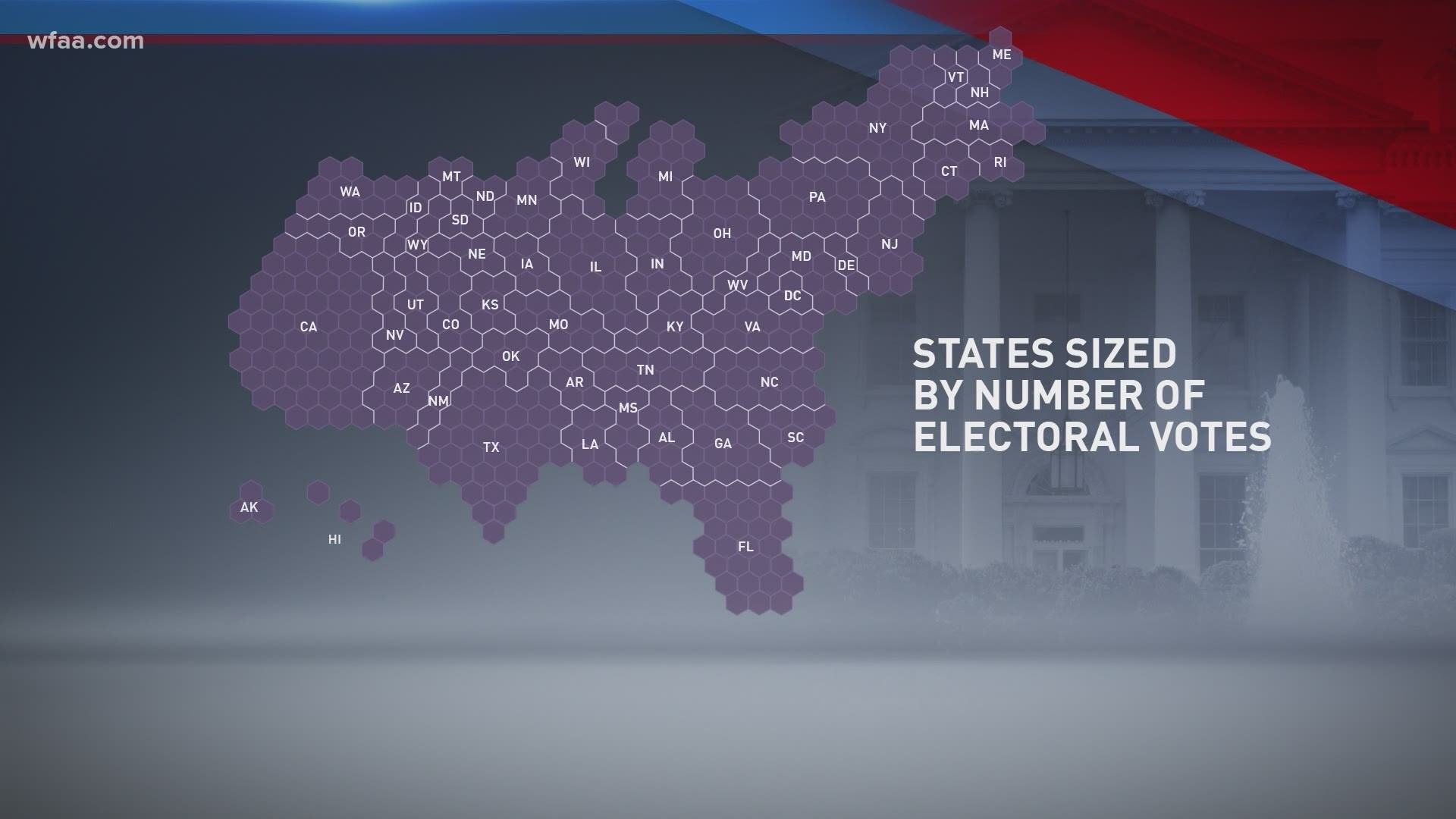DALLAS — It's happened five times before: an Electoral College winner losing the popular vote.
John Quincy Adams over Andrew Jackson in 1824, Rutherford B. Hayes over Samuel Tilden in 1876, Benjamin Harrison over Grover Cleveland in 1888, George W. Bush over Al Gore in 2000, and Donald Trump over Hillary Clinton in 2016. That year, Clinton won the popular vote by more than 2.8 million, but Trump became president.
"It's not the popular vote that wins you the election," said SMU political science professor Cal Jillson. When asked to delve into his Politics 101 explanation, Jillson said the framers of the Constitution wanted to make sure each state had a representative voice. Texas' 38 electoral vote total, for example, represents the 36 members of the U.S. House of Representatives in the Lone Star State plus the two senators from Texas.
If a candidate wins Texas, as Donald Trump did on Election Day, they get all of those electoral votes. That way the greater populations of the biggest states like Texas, Florida, New York or California, as compared to a Montana or a New Hampshire, don't get to decide for everybody else.
"I think that there are enough states that benefit by the Electoral College that it will be hard to get it replaced by a direct popular vote," Jillson said.
Others have likened the Electoral College to a World Series. The Dodgers didn't win in Arlington because they had the most combined runs. They won because they were the first to win four "electoral" games.
"There are 51 simultaneous games," in that analogy, said Lara Brown of George Washington University in reference to the electoral votes of all 50 states and the District of Columbia. "The framers wanted the electoral votes in your state to be related to your entire congressional delegation, which is then about representing the people through their states."
Established by Article II, Section 1, Clause 2 of the U.S. Constitution and modified by the 12th and 23rd Amendments, any further modification, as in changing the presidential election to a national popular vote, would require an additional amendment and ratification by at least 38 states.
Jillson, not a fan of the Electoral College system, doubts that will ever happen.
"I do think the Electoral College is a 19th century, no-longer-relevant device. And we should get rid of it if we could. We can't. So we're stuck with it."
A system, with Joe Biden leading in the national popular vote, potentially in play again.

